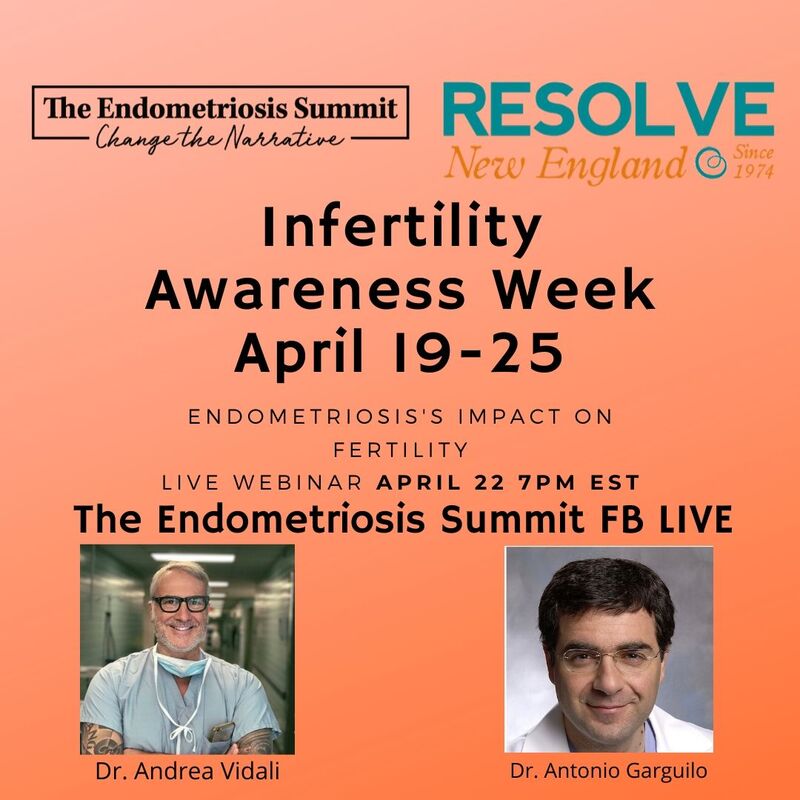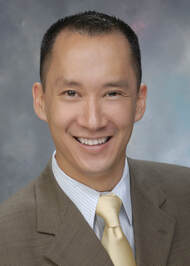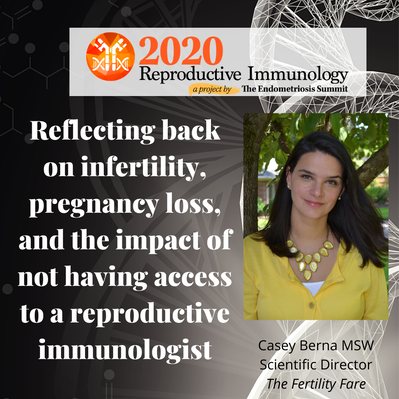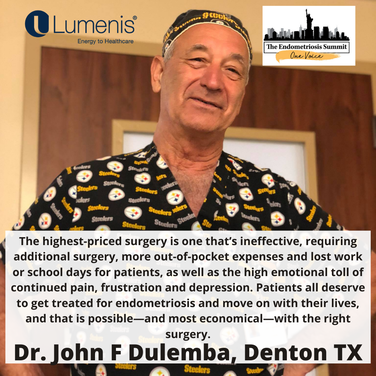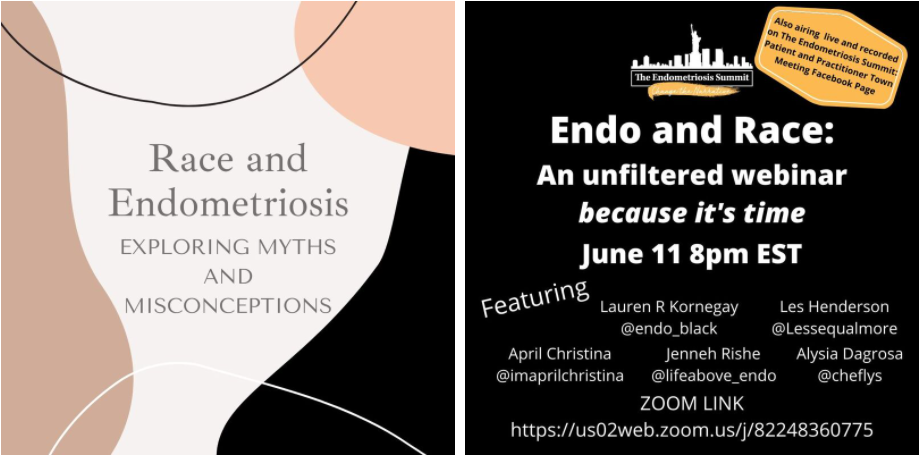By Casey Berna, MSW, Endometriosis Advocate
This week marks National Infertility Awareness week, a time devoted to bringing awareness to and educating the greater community about a struggle that impacts millions of individuals in the United States alone. Although not all patients with endometriosis will struggle to conceive, some studies suggest that up to 50% of women with infertility also struggle with endometriosis. Unfortunately, the percentage of trans and non-binary individuals struggling with both endometriosis and infertility at this time is underresearched, but we know these communities are impacted as well.
The Endometriosis Summit Co-founder, Dr. Andrea Vidali, is a reproductive immunologist and endometriosis specialist who has devoted much of his time and energy to improving both fertility and quality of life for the many that struggle with infertility, miscarriage, and endometriosis. Inspired by his dearly departed partner in practice, the world renown Dr. Jeffrey Braverman, Dr. Vidali embraces the complex needs of patients who struggle with endometriosis, infertility, and recurrent pregnancy loss- all while challenging the status quo when in the field of Reproductive Endocrinology.
People with endometriosis are at a greater risk for infertility. Egg quality and quantity, fertilization and implantation can all be impacted by endometriosis and potentially associated autoimmune conditions. Patients can also experience recurrent pregnancy loss, as well as complications during pregnancy. The reasons for these challenges can be multifactorial in nature.
Over the years, Dr. Vidali has seen many of his patients struggle to get an endometriosis diagnosis to begin with. While up to 25% of endometriosis patients can be asymptomatic, often only presenting with infertility or pregnancy loss, more obvious symptoms of endometriosis are often missed and not always investigated. There is a pervasive belief throughout the reproductive endocrinology community that many of the presenting clinical challenges of endometriosis and infertility can be avoided through IVF, so why bother with diagnostic laparoscopy at all?
With endometriosis, infertility, and recurrent pregnancy loss, one size does not fit all. Each struggling patient deserves an individualized approach, as well as a complete understanding of potential challenges faced. A simple, thorough clinical history can help a provider suspect endometriosis from the start. Physical symptoms such as painful periods, pain with ovulation, painful intercourse, gastrointestinal and bladder issues, back and leg pain can be indicators that endometriosis is present. A family history of endometriosis, infertility, or pregnancy loss can also be indicative of potential disease, as patients are 7x more likely to have endometriosis if a family member struggled with it. Upon examination and testing, patients may also present with poor egg quality, low AMH for their age, and a restriction of blood flow to the ovaries and the uterus.
While endometriosis is not an autoimmune disease, Vidali’s research has found that many patients have associated autoimmune diseases or early positive AMA indicators that could eventually develop into autoimmune diseases. In particular, associations are high with Hashimoto’s Thyroiditis, Rheumatoid Arthritis, Lupus, and Antiphospholipid Syndrome to name a few. Changes seen in endometriosis patients on the cellular and immune level, such as an increase in inflammatory factors (Tc17) and significant disruptions in the amount of Treg and Natural Killer cells can have a devastating impact on fertilization and implantation. These factors can further complicate fertility and pregnancy for patients trying to build their families and cannot always simply be addressed by IVF.
The good news is that there are interventions that have shown to be successful for those struggling with the devastating physical and emotional impact of endometriosis, infertility and recurrent pregnancy loss. Wide excision surgery performed by an endometriosis expert can remove endometriotic lesions from all impacted organs, thereby removing the source of inflammation and inflammatory factors, improving egg quality, fertilization, implantation and overall quality of life. For those who may still struggle with fertility and pregnancy loss after excision, immunotherapy treatments can help regulate autoimmune and cellular factors associated with challenges ranging from implantation and carrying through to helping patients have a successful pregnancy and even delivery with less complications.
Reproductive Endocrinologists, similar to obstetrician gynecologists, handle an array of reproductive challenges that patients face. Endometriosis and potential associated autoimmune conditions with their resulting family building challenges, can be incredibly difficult to treat even for those who spend each day, all day, primarily treating and studying this patient population. Patients confronted with these physically and emotionally grueling issues can face a lifetime of delayed diagnosis and dismissal from providers before seeking out intervention. The Endometriosis Summit strongly believes that practitioners who treat these patients have a moral and ethical obligation to strive to investigate a potential endometriosis diagnosis. Each patient must receive the informed consent required to learn about ALL multidisciplinary and multifactorial care available, not only presenting them with options and treatments limited to the practitioners general knowledge and abilities.
During National Infertility Awareness Week, the Endometriosis Summit is committed to providing support and education to those in the community struggling with infertility and pregnancy loss. For more information and support please check out our events this week.
Wednesday April 22 2020 at 7pm EST join Resolve New England and The Endometriosis Summit for a Facebook Live on The Endometriosis Summit Facebook Page. With Dr. Antonio Garguilo from Harvard and Brigham and Women’s in Boston, MA and Dr. Andrea Vidali from the Braverman Reproductive Institute in New York and Hoboken NJ.
Friday April 24 2020 at 430pm on Instagram LIVE @endometriosis_surgeon will host a Reproductive Immunology and Male Fertility Issues
EndometriosisSummit on April 23 2020 will host an all day question and answer period on Fertility and Endometriosis in InstaStories. Post your theory based question and get your answer (please note individual cases will not be discussed)
On October 25 2020 The Endometriosis Summit launches its first Reproductive Immunology and Preventing Miscarriage ONLINE conference
